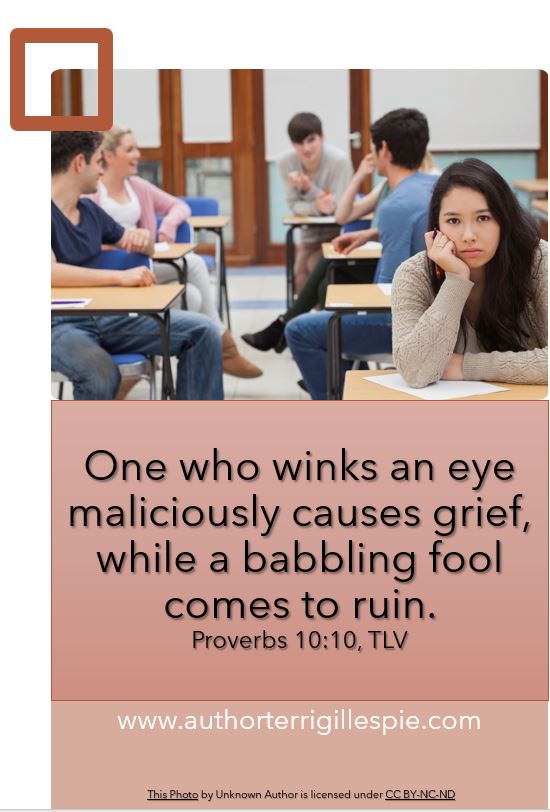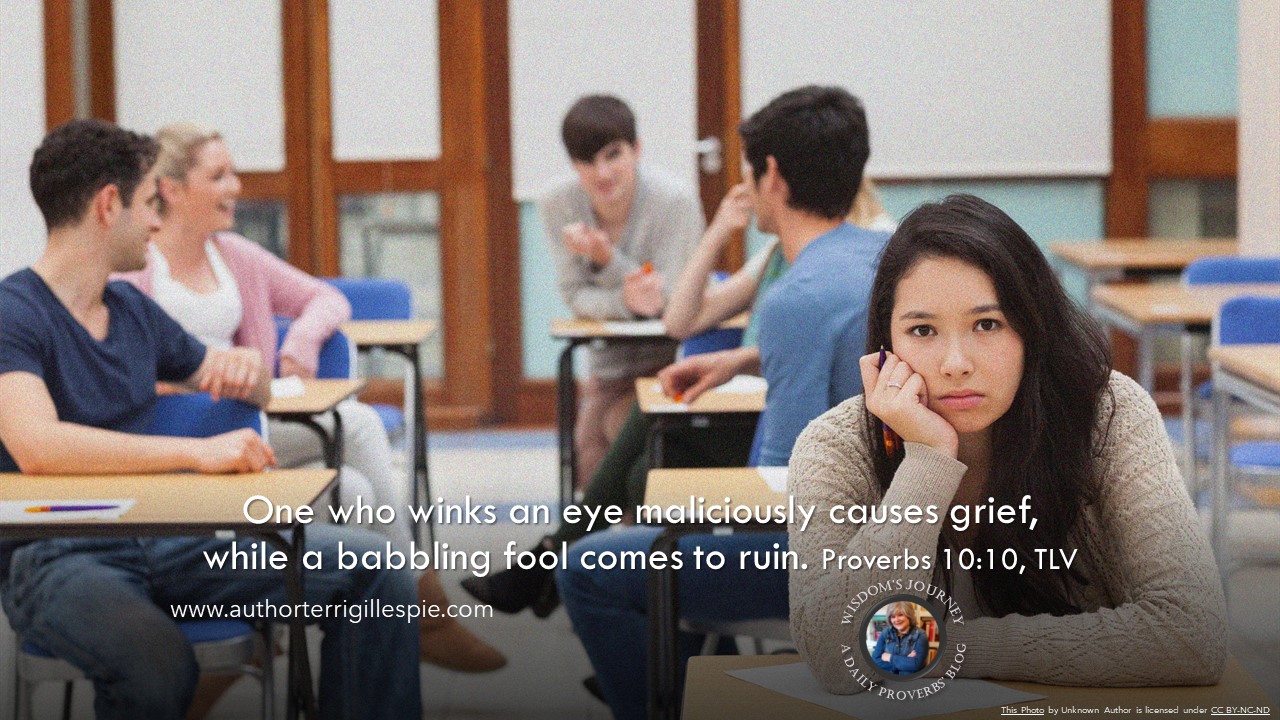Today’s Blog: Winking = Wounding?
TODAY’S PROVERB: One who winks an eye maliciously causes grief, while a babbling fool comes to ruin. Proverbs 10:10, TLV
Have you ever been in a conversation where you felt left out? Almost as though the people around you were in on a secret and they purposely excluded you? Doesn’t feel good does it?
That’s kind of what winking is — if you aren’t the winker.
If someone winks, and we are not “in” on the secret, we can be fairly certain there’s more going on than we’re privy to. So, what’s the big deal? I mean, it’s just winking.
In some cultures, winking is considered offensive and vulgar. In our culture, winking is used in a variety of non-verbal communications. From jokes to a hidden agreement to sexual interest to ill intent, we still consider winking as innocuous. But, is it?
A Hidden Agenda . . .
Scriptures seem to frown on winkers. There are four references in the Bible about winking (Proverbs 6:13; 10:10; 16:30, and Psalm 35:19). None of them are harmless. The common thread is a hidden agenda meant to dominate over another.
I guess my takeaway goes back to my original comments above — about feeling left out. When we’re in a conversation with others, it would seem we should only reveal information that is relevant to everyone in the discussion. Once we imply — whether by winking or a knowing look — that others are excluded from relevant information, then we should re-evaluate why we’re discussing the topic with people who don’t need or shouldn’t to know.
In other words, are we purposely excluding others as a way to gloat? We know something they don’t know. Sounds childish, doesn’t it?
It’s all too easy to connect with someone in a group and dismiss others we may assume won’t contribute to the conversation. Or several people connect and one person feels left out. The fruit of these behaviors? Disunity.
A Healthier Environment . . .
How can we contribute to a healthier environment for everyone? We can:
- be aware of everyone in the group. Have they not contributed to the conversation? Then, purposely ask their opinion.
- discern if the conversation is better taken to a private location. If so, then graciously excuse those folks relevant to the discussion to continue in private, or
- change the subject. If it’s clear the topic should not be open for a general audience, then change the topic.
It’s about connection and inclusion. To purposely disregard someone because we don’t feel they will contribute to the interchange, is at best rude, and worst hurtful.
Next time we’re at a gathering — when we don’t have to social distance — and we notice someone is being ignored in the conversation, stop. Try to bring them into the discussion.
Who knows, we may learn something marvelous and informative. And even if they don’t share — at that moment — you have encouraged and fostered unity and harmony.
May we not “wink” at others, my friends.
Proverbs 10:10 Tree of Life Version – TLV, #tlvbible, #tlvproverbs




